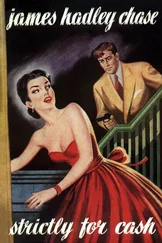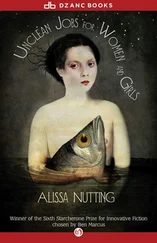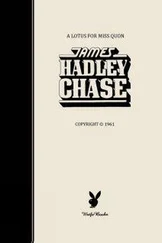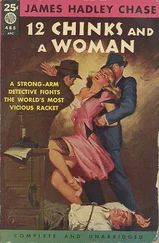P James - An Unsuitable Job For A Woman
Здесь есть возможность читать онлайн «P James - An Unsuitable Job For A Woman» весь текст электронной книги совершенно бесплатно (целиком полную версию без сокращений). В некоторых случаях можно слушать аудио, скачать через торрент в формате fb2 и присутствует краткое содержание. Жанр: Детектив, на английском языке. Описание произведения, (предисловие) а так же отзывы посетителей доступны на портале библиотеки ЛибКат.
- Название:An Unsuitable Job For A Woman
- Автор:
- Жанр:
- Год:неизвестен
- ISBN:нет данных
- Рейтинг книги:4 / 5. Голосов: 1
-
Избранное:Добавить в избранное
- Отзывы:
-
Ваша оценка:
- 80
- 1
- 2
- 3
- 4
- 5
An Unsuitable Job For A Woman: краткое содержание, описание и аннотация
Предлагаем к чтению аннотацию, описание, краткое содержание или предисловие (зависит от того, что написал сам автор книги «An Unsuitable Job For A Woman»). Если вы не нашли необходимую информацию о книге — напишите в комментариях, мы постараемся отыскать её.
An Unsuitable Job For A Woman — читать онлайн бесплатно полную книгу (весь текст) целиком
Ниже представлен текст книги, разбитый по страницам. Система сохранения места последней прочитанной страницы, позволяет с удобством читать онлайн бесплатно книгу «An Unsuitable Job For A Woman», без необходимости каждый раз заново искать на чём Вы остановились. Поставьте закладку, и сможете в любой момент перейти на страницу, на которой закончили чтение.
Интервал:
Закладка:
'No, Miss Gray, I believe that. You wouldn't have waited there alone in the cottage that night without your gun.'
For the first time Cordelia was desperately afraid. This wasn't a game. It never had been, although at Cambridge the police interrogation had held some of the unreality of a formal contest in which the result was both foreseeable and unworrying since one of the opponents didn't even know he was playing. It was real enough now. If she were tricked, persuaded, coerced into telling him the truth, she would go to prison. She was an accessory after the fact. How many years did one get for helping to conceal murder? She had read somewhere that Holloway smelt. They would take away her clothes. She would be shut up in a claustrophobic cell. There was remission for good conduct but how could one be good in prison? Perhaps they would send her to an open prison. Open. It was a contradiction in terms. And how would she live afterwards? How would she get a job? What real personal freedom could there ever be for those whom society labelled delinquent?
She was terrified for Miss Learning. Where was she now? She had never dared ask Dalgliesh, and Miss Learning's name had hardly been mentioned. Was she even now in some other room of New Scotland Yard being similarly questioned? How reliable would she be under pressure? Were they planning to confront the two conspirators with each other? Would the door suddenly open and Miss Learning be brought in, apologetic, remorseful, truculent? Wasn't that the usual ploy, to interview conspirators separately until the weaker broke down? And who would prove the weaker?
She heard the Superintendent's voice. She thought he sounded rather sorry for her.
'We have some confirmation that the pistol was in your possession that night. A motorist tells us that he saw a parked car on the road about three miles from Garforth House and when he stopped to inquire if he could help he was threatened by a young woman with a gun.'
Cordelia remembered that moment, the sweetness and silence of the summer night suddenly overlaid by his hot, alcoholic breath.
'He must have been drinking. I suppose the police stopped him for a breath test later that night and now he's decided to come up with this story. I don't know what he expects to gain by it but it isn't true. I wasn't carrying a gun. Sir Ronald took the pistol from me on my first night at Garforth House.'
'The Metropolitan Police stopped him just over the force border. I think he may persist in his story. He was very definite. Of course, he hasn't identified you yet but he was able to describe the car. His story is that he thought you were having trouble with it and stopped to help. You misunderstood his motives and threatened him with a gun.'
'I understood his motives perfectly. But I didn't threaten him with a gun.'
'What did you say, Miss Gray?'
'Leave me alone or I'll kill you.'
'Without the gun, surely that was an empty threat?'
'It would always have been an empty threat. But it made him go.'
'What exactly did happen?'
'I had a spanner in the front pocket of the car and when he shoved his face in at the window I grasped that and threatened him with it. But no one in his right senses could have mistaken a spanner for a gun!'
But he hadn't been in his right senses. The only person who had seen the gun in her possession that night was a motorist who hadn't been sober. This, she knew, was a small victory. She had resisted the momentary temptation to change her story. Bernie had been right. She recalled his advice; the Superintendent's advice; this time she could almost hear it spoken in his deep slightly husky voice: 'If you're tempted to crime, stick to your original statement. There's nothing that impresses the jury more than consistency. I've seen the most unlikely defence succeed simply because the accused stuck to his story. After all, it's only someone else's word against yours; with a competent counsel that's half-way to a reasonable doubt.'
The Superintendent was speaking again. Cordelia wished that she could concentrate more clearly on what he was saying. She hadn't been sleeping very soundly for the past ten days – perhaps that had something to do with this perpetual tiredness.
'I think that Chris Lunn paid you a visit on the night he died. There's no other reason that I could discover why he should have been on the road. One of the witnesses to the accident said that he came out in the little van from that side road as if all the devils in hell were following him. Someone was following him – you, Miss Gray.'
'We've had this conversation before. I was on my way to see Sir Ronald.'
'At that hour? And in such a hurry?'
'I wanted to see him urgently to tell him that I'd decided to drop the case. I couldn't wait.'
'But you did wait, didn't you? You went to sleep in the car on the side of the road. That's why it was nearly an hour after you'd been seen at the accident before you arrived at Garforth House.'
'I had to stop. I was tired and I knew it wasn't safe to drive on.'
'But you knew too, that it was safe to sleep. You knew that the person you had most to fear from was dead.'
Cordelia didn't reply. A silence fell on the room but it seemed to her a companionable not an accusing silence. She wished that she wasn't so tired. Most of all, she wished that she had someone to talk to about Ronald Callender's murder. Bernie wouldn't have been any help here. To him the moral dilemma at the heart of the crime would have held no interest, no validity, would have seemed a wilful confusion of straightforward facts. She could imagine his coarse and facile comment on Eliza Learning's relations with Lunn. But the Superintendent might have understood. She could imagine herself talking to him. She recalled Ronald Callender's words that love was as destructive as hate. Would Dalgliesh assent to that bleak philosophy? She wished that she could ask him. This, she recognized, was her real danger – not the temptation to confess but the longing to confide. Did he know how she felt? Was this, too, part of his technique?
There was a knock at the door. A uniformed constable came in and handed a note to Dalgliesh. The room was very quiet while he read it. Cordelia made herself look at his face. It was grave and expressionless and he continued looking at the paper long after he must have assimilated its brief message.
She thought that he was making up his mind to something. After a minute he said:
'This concerns someone you know, Miss Gray. Elizabeth Learning is dead. She was killed two days ago when the car she was driving went off the coast road south of Amalfi. This note is confirmation of identity.'
Cordelia was swept with relief so immense that she felt physically sick. She clenched her fist and felt the sweat start on her brow. She began to shiver with cold. It never occurred to her that he might be lying. She knew him to be ruthless and clever but she had always taken it for granted that he wouldn't lie to her. She said in a whisper: 'May I go home now?'
'Yes. I don't think there's much point in your staying, do you?' 'She didn't kill Sir Ronald. He took the gun from me. He took the gun -'
Something seemed to have happened to her throat. The words wouldn't come out.
'That's what you've been telling me. I don't think you need trouble to say it again.'
'When do I have to come back?'
'I don't think you need come back unless you decide that there's something you want to tell me. In that well-known phrase, you were asked to help the police. You have helped the police. Thank you.'
She had won. She was free. She was safe, and with Miss Learning dead, that safety depended only on herself. She needn't come back again to this horrible place. The relief, so unexpected and so unbelievable, was too great to be borne. Cordelia burst into dramatic and uncontrollable crying. She was aware of Sergeant Mannering's low exclamation of concern and a folded white handkerchief handed to her by the Superintendent. She buried her face in the clean, laundry-smelling linen and blurted out her pent-up misery and anger. Strangely enough – and the oddness of it struck her even in the middle of her anguish – her misery was centred on Bernie. Lifting a face disfigured with tears and no longer caring what he thought of her, she blurted out a final, irrational protest:
Читать дальшеИнтервал:
Закладка:
Похожие книги на «An Unsuitable Job For A Woman»
Представляем Вашему вниманию похожие книги на «An Unsuitable Job For A Woman» списком для выбора. Мы отобрали схожую по названию и смыслу литературу в надежде предоставить читателям больше вариантов отыскать новые, интересные, ещё непрочитанные произведения.
Обсуждение, отзывы о книге «An Unsuitable Job For A Woman» и просто собственные мнения читателей. Оставьте ваши комментарии, напишите, что Вы думаете о произведении, его смысле или главных героях. Укажите что конкретно понравилось, а что нет, и почему Вы так считаете.












